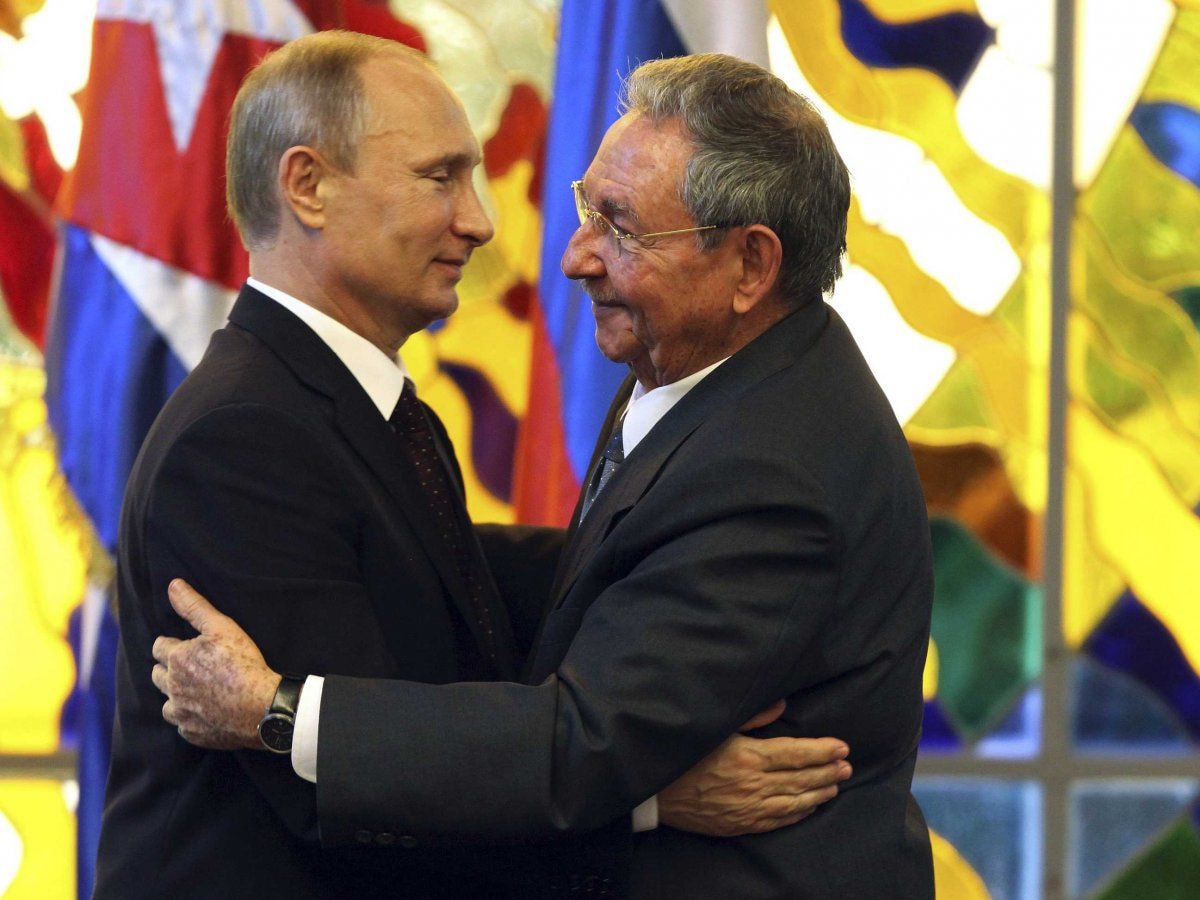Russia "races" to Latin America
(Baonghean) - Russian Foreign Minister Sergei Lavrov has just visited Cuba and his itinerary includes a series of other Latin American countries. This visit to Latin America by the head of Russian diplomacy takes place in the context of the US and Western countries accelerating the process of normalizing relations with Cuba. Analysts say that Russia does not want to be "slower" than its Western rivals in the traditional market, which is a top priority in Moscow's policy.
(Baonghean) - Russian Foreign Minister Sergei Lavrov has just visited Cuba and his itinerary includes a series of other Latin American countries. This visit to Latin America by the head of Russian diplomacy takes place in the context of the US and Western countries accelerating the process of normalizing relations with Cuba. Analysts say that Russia does not want to be "slower" than its Western rivals in the traditional market, which is a top priority in Moscow's policy.
Russian Foreign Minister Sergei Lavrov’s stop in Cuba seemed “hurried” at only 6 hours, but there was still a dense agenda of issues discussed between the two leaders. Among them was the implementation of bilateral agreements signed during Russian President Vladimir Putin’s visit to Havana in 2014. The two leaders also reviewed preparations for the 13th session of the bilateral Intergovernmental Commission, scheduled to take place in Russia next April. Foreign Minister Lavrov affirmed that many Russian businesses were interested in participating in Cuba’s development plans, and said that the two countries would maintain cooperation on international issues and in Cuba’s efforts to end the US embargo.
 |
| Russian President Vladimir Putin visited Cuba in 2014. Photo: Reuters |
It is not difficult to see that the presence of the Russian Foreign Minister in Cuba at this time seems to be an affirmation that: Strengthening relations with Havana has always been among Russia's strategic priorities. Before Mr. Lavrov, Russian Defense Minister Sergei Shoigu also visited Cuba last month. It would not be remarkable if the visits of Russian officials to Cuba did not take place at a time when Western diplomats have been constantly present in this Caribbean island nation recently. After the US and Cuba announced the normalization of relations in December last year, the European Union is also accelerating similar negotiations with this island nation. Most recently, 2 days ago, the High Representative of the European Union (EU), Ms. Federica Mogherini, visited Cuba with the goal of paving the way for the two sides to move towards a "thaw" period in the relationship that has been tense for decades.
Analysts say that the recent visit to Cuba by Russian officials has many purposes: It helps Russia tighten its strategic relationship with Cuba and shows the Americans and the West that it is not easy to pull Cuba away from Russia. Previously, at the end of 2014, answering the question of how the strategic relationship between Russia and Cuba would be in the context of the US having just lifted the embargo on Cuba and Washington still not stopping its pressure on Moscow? Russian Foreign Minister Sergei Lavrov frankly said that he did not think Cuba "would be pulled away from Russia".
It can be said that Russia and Cuba have had a close relationship in history. During the Cold War, the Soviet Union and Cuba were allies. This was also the reason why the US severed diplomatic relations with this country. Cuba agreed to let the Soviet Union deploy nuclear missiles on its soil. However, after the Cold War ended, Russia, for many goals of developing the country and building new international relations, seemed to have "abandoned" this Caribbean island nation. It was not until 2005 that Russia and Cuba re-promoted their relationship but there have not been any significant breakthroughs. The proof is that Russia is only Cuba's 9th trading partner, far behind Venezuela, China and Spain, the island nation's 3 leading economic partners.
Realizing that the competition to enter Cuba was increasingly fierce, in September 2008, then Russian Prime Minister Putin affirmed that building relations with Latin America, especially with Cuba, was one of Russia's top priorities. In July 2014, Russian President Putin officially visited this country and erased up to 90% (30 billion USD) of the huge debt of 35 billion USD that Cuba owed the Soviet Union. Next, Putin also signed a series of cooperation contracts with Cuban President Raul Castro on economics, society, education, health, industry... Especially the agreement on cooperation in oil and gas exploitation in Cuba's waters. The Russian President affirmed that “Russia wants to be the one to save Cuba from the unreasonable embargo that the United States is applying to this country. Recently, the Russian oil company Zarubezhneft announced that by 2025 it will invest 100 million USD in Cuba. With Cuba's oil reserves estimated at about 20 billion barrels, the Russian investment plan will bring huge benefits to both Russia and Cuba.
It can be seen that Russia's interest in Cuba or the Latin American region is inevitable in the context of integration and increased global cooperation. Russia has developed to a new stage, has the need and has a certain ability to reach out to remote regions with great potential for economic cooperation, especially in the three fields considered to be the pinnacle today: oil and gas, weapons and nuclear energy. Moreover, in the context of the West seeking to isolate Russia in the international arena, it is completely understandable that Russia seeks "old friends" to diversify international relations. In addition, Western countries, led by the US, are gradually removing the "barrier" of embargo against Cuba, this island nation is facing many opportunities to welcome and choose partners, Russia certainly does not want to "slow down" in the race to establish a foothold here. With such developments, Cuba and the Latin American region more broadly will certainly witness vibrant competitions between major countries, including the US and Russia.
Thanh Huyen
